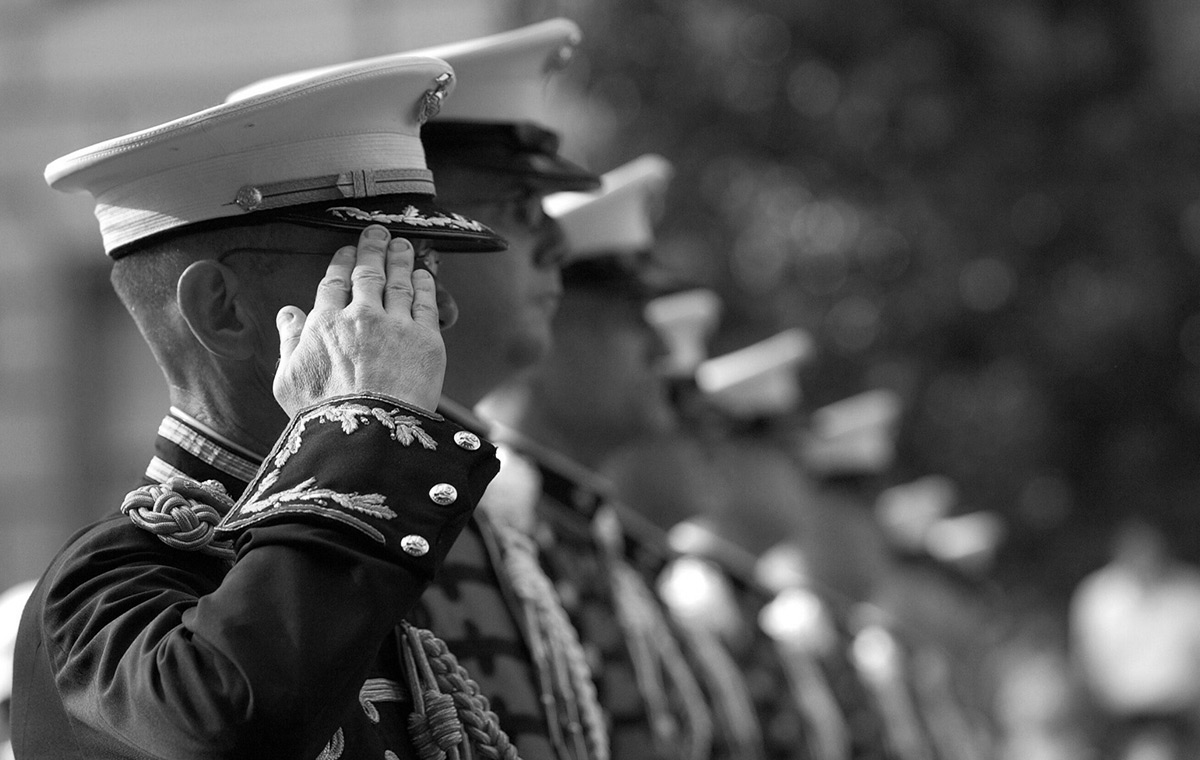What Is the Uniform Code of Military Justice?
The Uniform Code of Military Justice (UCMJ) is a federal law enacted by Congress per the authority given by the Constitution in Article I, Section 8. This section states that “The Congress shall have Power…to make Rules for the Government and Regulation of the land and naval forces.”
The UCMJ outlines the military justice system and lists criminal offenses under military law. It requires the President of the United States (acting as the Commander in Chief of the Armed Forces) to create rules and regulations to implement and enforce military law. The President creates these regulations by issuing an executive order, known as the Manual for Courts-Martial (MCM).
The MCM outlines laws for military court-martials, providing them maximum punishments for each offense listed in the punitive articles of the UCMJ.
How Does It Impact Service Members Accused of a Crime?
Military court-martials are the most severe sanctions that exist under military law. Depending on the offense, a conviction can result in jail time or punitive measures, including dishonorable discharge, as well as fines and a reduction in rank.
Military court-martials come in three separate levels:
- Summary
- Special
- General
The level chosen typically depends on the offense’s severity and rank of the accused.
Summary court-martial has jurisdiction only of enlisted personnel. Except for the Air Force, there’s no requirement to provide the accused with a defense lawyer (although one is usually allowed). The maximum punishment can include:
- Confinement (or hard labor) for 30 days
- Forfeiture of two-thirds pay for a month
- Reduction to lowest pay-grade (E-1)
Special court-martial has jurisdiction over personnel charged with any UCMJ offenses and are used to try offenses of medium severity. The maximum punishment includes a combination of:
- A bad conduct discharge
- One year imprisonment
- Forfeiture of two-thirds pay for one year
- Reduction to lowest pay-grade (E-1)
General court-martial is reserved for the most severe offenses like homicide, rape, or robbery. This court-martial can impose any sentence authorized by the MCM, including:
- Dishonorable discharge
- Life in prison
- Death
The most common type of proceeding is nonjudicial punishment. If a military member commits an offense listed in the UCMJ, the commanding officer may decide to offer them proceedings under Article 15. These proceedings are akin to summary court-martial, except the commanding officer acts as judge and jury. The proceedings also do not result in a criminal record. Except for being aboard a ship at sea, members don’t have to accept nonjudicial punishment proceedings and can demand trial by court-martial instead.
While members have this option, it’s not usually recommended. If a member is found guilty by a court-martial, the potential punishments are more severe, including a lifetime criminal record.
Under Article 15, a service member has the following rights:
- Right to remain silent
- Be accompanied by a lawyer to speak on your behalf
- Be informed of the evidence
- Have witnesses present
- Have proceedings open to the public (unless otherwise instructed by the commanding officer)
Why Do I Need a Military Law Attorney for My Legal Defense?
Military law attorneys have an intimate understanding of military law, and therefore have experience handling all its nuances and fighting for the rights of service members. When court-martialed, everything you’ve worked hard for is on the line to include your employment, rank, pay, bonuses, retirement and VA benefits. You do not want to risk everything on an attorney who is not familiar with this area of the law. You want to make sure that the attorney you decide to hire has extensive experience focusing on criminal defense and military law.
I Committed a Crime Off Base. Do I Still Need a Military Law Attorney?
Outside of military-specific offenses, most crimes violate both civilian and military law. Examples include murder, DUIs, assault, and robbery. They would have the right to arrest an active service member without informing military personnel. Likewise, a DUI can result in civilian charges when a member is driving under the influence on public roads. Local law enforcement can arrest and charge a service member with a DUI, although they could face similar penalties from the military for that conduct.
If a crime violates both military and state civilian law, the service member may be tried by a military court, civilian court, or both. A service member cannot be tried for the same misconduct by both military and federal court, but they can be tried for the same misconduct by military and state court. If a service member is arrested or charged — on or off base, they have a right to legal defense by way of military or civilian recourse. Military members have a right to a JAG/TDS attorney if charged in a court martial. If they are charged in state court, they do not.
Contact Vindicate Law for Help From WA’s Most Trusted Defense Attorneys
If you or someone you know requires a reliable, experienced defense attorney, look no further than Vindicate Law. Our team can build a defense and help you get your life back.

